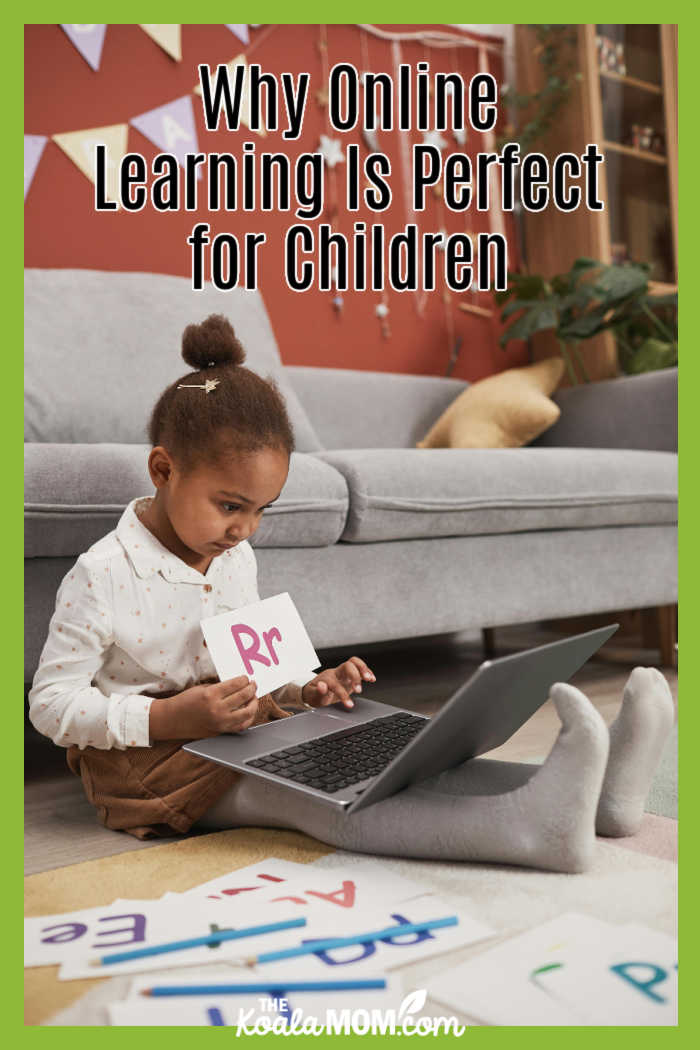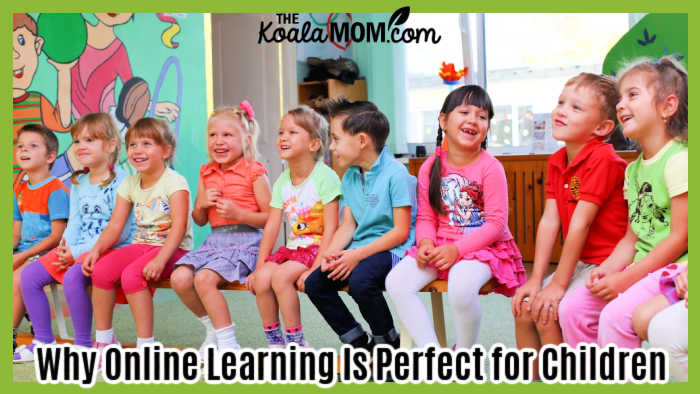As technology continues to revolutionize education, online learning has emerged as an innovative and effective method for teaching children. Particularly in recent years, the flexibility and accessibility of online platforms have made them a popular choice for families seeking alternatives to traditional classroom settings. From personalized instruction to engaging interactive lessons, online learning offers numerous advantages that make it a perfect fit for young learners. Here are the key reasons why online education is an excellent choice for children.

Personalized Learning Tailored to Individual Needs
One of the most significant advantages of online learning is its ability to provide personalized instruction. Unlike traditional classrooms, where teachers must balance the needs of multiple students, online programs can tailor lessons to match each child’s learning pace and style.
Moreover, this customization ensures that children who require extra support receive it, while those who excel in certain areas can move ahead without being held back. For instance, platforms offering virtual kindergarten classes allow young learners to progress through foundational subjects like math, reading, and science at their own speed. This individualized approach helps build confidence and ensures a strong educational foundation.
Flexibility that Fits Family Schedules
Online learning offers unmatched flexibility, allowing families to structure education around their unique schedules. Whether it’s accommodating extracurricular activities, family commitments, or travel plans, virtual learning enables children to attend classes and complete assignments at times that work best for them.
This flexibility is particularly beneficial for families with irregular schedules or those living in remote areas with limited access to quality schools. Online programs eliminate the need for daily commutes, giving parents more time to focus on their children’s education and well-being.
Interactive and Engaging Learning Experiences
Many online learning platforms incorporate interactive elements that make lessons more engaging and enjoyable for children. Through multimedia tools like videos, animations, and interactive quizzes, children can absorb complex concepts in a way that feels fun and exciting. Gamified learning, where educational content is presented in a game-like format, also keeps young learners motivated and eager to participate.
In addition, virtual classrooms often use live or recorded sessions where children can interact with teachers and peers. This combination of independent and collaborative learning fosters creativity and critical thinking while maintaining a high level of student engagement.
Safe and Comfortable Learning Environment
For some children, traditional classrooms can be overwhelming due to noise, social pressures, or other distractions. Online learning provides a safe and comfortable environment where children can focus on their studies without unnecessary stress. This is particularly beneficial for children with sensory sensitivities, anxiety, or other conditions that make conventional classroom settings challenging.
By learning at home, children can benefit from a space that is tailored to their needs, helping them stay calm and concentrated. Parents can also monitor their progress closely, ensuring a supportive atmosphere that promotes academic success.
Access to a Wide Range of Resources and Expert Teachers
Online learning platforms often provide access to a wealth of resources that go beyond what is typically available in traditional classrooms. From virtual labs and e-books to supplementary courses in arts, coding, or foreign languages, these programs allow children to explore a broader range of subjects and interests.
Additionally, many online programs connect students with highly qualified teachers who specialize in specific subjects or age groups. This access to expert instruction ensures that children receive high-quality education tailored to their developmental stage and learning objectives.
Encouraging Self-Discipline and Responsibility
While parents and teachers play an essential role in guiding children’s education, online learning also fosters important life skills like self-discipline and responsibility. By managing their schedules, completing assignments independently, and navigating digital platforms, children learn to take ownership of their education.
These skills are invaluable in preparing young learners for future academic and professional endeavors. Developing a sense of accountability at an early age lays the groundwork for becoming a self-motivated and organized individual.
Preparing Children for a Digital Future
In an increasingly digital world, familiarity with technology is a vital skill. Online learning introduces children to various digital tools and platforms, helping them develop technical proficiency and adaptability. These skills extend beyond academics, equipping children with the ability to navigate technology effectively in their personal and professional lives.
From typing and researching online to participating in virtual collaborations, children gain firsthand experience with digital literacy that will serve them well throughout their education and future careers.

Online learning has transformed the educational landscape, providing children with a unique and effective way to learn, grow, and thrive. Its emphasis on personalization, flexibility, and interactive experiences ensures that every child has the opportunity to succeed academically and develop essential life skills. Programs offering virtual kindergarten options exemplify how early education can be enhanced through innovative approaches, setting young learners on a path toward lifelong success.
As families continue to seek educational solutions that cater to their specific needs, online learning proves to be a valuable and versatile option. By embracing this modern method of teaching, parents can ensure their children receive a well-rounded and future-ready education in an environment where they feel supported and inspired.

No Responses Yet